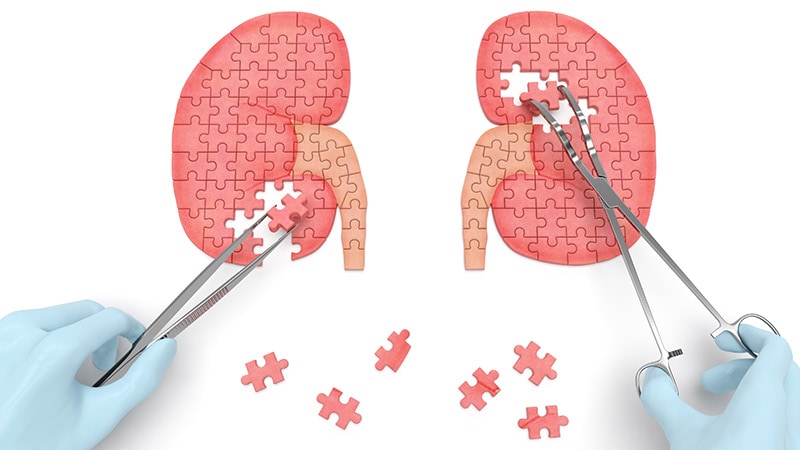SCAI Drafts Guidance on Renal Denervation for Hypertension
Core Concepts
Guidelines for renal denervation in hypertension.
Abstract
The Society for Cardiovascular Angiography and Interventions (SCAI) has released a draft guidance on renal denervation (RDN) for hypertension refractory to medical therapies. The draft addresses patient selection, procedural techniques, operator competence, training, and hospital guidance for RDN adoption. Feedback is requested by June 14. RDN disrupts sympathetic nerves near renal arteries and has shown short-term blood pressure reductions. The draft emphasizes the need for clinical competence, training standards, and best practices for RDN.
Patient Selection Considerations
- RDN effectiveness varies with patient age and arterial stiffness.
- Patients with limited treatment options may benefit most.
- Response to RDN varies, with predictors like baseline systolic blood pressure.
Procedural and Technical Considerations
- Preprocedure evaluation should rule out secondary causes of HTN.
- Anatomic considerations and imaging modalities are crucial for RDN success.
- Operators need training in access, catheters, and troubleshooting.
Training, Competency, and Institutional Requirements
- Interventional cardiologists must demonstrate proficiency in various skill sets.
- Institutions offering RDN need a dedicated HTN program and a multidisciplinary team.
- Requirements for RDN referral centers include experienced operators and appropriate infrastructure.
Customize Summary
Rewrite with AI
Generate Citations
Translate Source
To Another Language
Generate MindMap
from source content
Visit Source
www.medscape.com
SCAI Drafts Guidance on Renal Denervation for Hypertension
Stats
"The draft addresses appropriate patient selection, best practices for procedural techniques, measures for operator competence, recommendations for operator and staff training, and guidance for hospitals and centers that want to adopt RDN."
"Two devices are awaiting FDA premarket approval: the Paradise uRDN system, by ReCor Medical; and the Symplicity Spyral device, by Medtronic."
"The first sham-controlled randomized trial of RDN was negative on its primary endpoint."
Quotes
"Renal denervation has been a long time coming, and it's a great example of how academicians, clinicians and industry leaders can partner to move the cardiovascular field forward, addressing a major public health issue for which alternative solutions are greatly needed." - Aronow
Key Insights Distilled From
by Richard Mark... at www.medscape.com 05-19-2023
https://www.medscape.com/viewarticle/992223
Deeper Inquiries
How can the healthcare industry ensure equitable access to RDN for patients across different demographics?
To ensure equitable access to Renal Denervation (RDN) for patients across different demographics, the healthcare industry can take several steps. Firstly, there should be efforts to educate healthcare providers and patients about the benefits and eligibility criteria for RDN. This can help in increasing awareness and ensuring that patients from diverse backgrounds are considered for the procedure. Additionally, healthcare organizations can work towards reducing financial barriers by advocating for insurance coverage of RDN for all eligible patients, regardless of their socioeconomic status. Implementing guidelines for appropriate patient selection, as outlined in the SCAI draft position statement, can also help in standardizing the process and ensuring fair access for all demographics.
What are the potential drawbacks or risks associated with widespread adoption of RDN for hypertension treatment?
While Renal Denervation (RDN) shows promise as a treatment for hypertension, there are potential drawbacks and risks associated with its widespread adoption. One concern is the need for skilled operators and specialized centers to perform the procedure effectively. Without proper training and expertise, there is a risk of procedural complications and suboptimal outcomes for patients. Another drawback is the cost associated with RDN, including the initial procedure and potential follow-up care. If not covered by insurance or if the costs are prohibitive, certain patient populations may be excluded from accessing this treatment option. Additionally, the long-term efficacy and safety of RDN beyond the short-term blood pressure reductions seen in clinical trials need further evaluation to ensure its effectiveness over time.
How can advancements in RDN technology impact the future of cardiovascular care beyond hypertension management?
Advancements in Renal Denervation (RDN) technology have the potential to impact the future of cardiovascular care beyond hypertension management in several ways. Firstly, the development of more precise and efficient RDN devices can lead to improved outcomes and reduced procedural risks for patients undergoing the treatment. This can pave the way for RDN to be used in a broader range of cardiovascular conditions beyond hypertension, such as heart failure or arrhythmias, where sympathetic nerve activity plays a role. Furthermore, as RDN technology evolves, it may open up possibilities for personalized medicine approaches in cardiovascular care, tailoring treatments to individual patient characteristics and responses. Overall, advancements in RDN technology have the potential to revolutionize the field of cardiovascular medicine by offering innovative solutions for a variety of conditions beyond hypertension.
0
